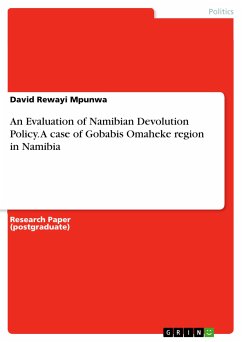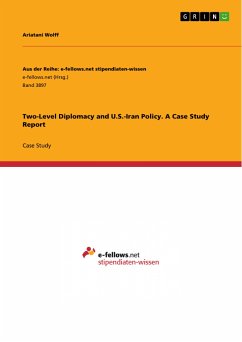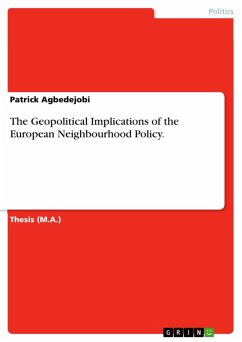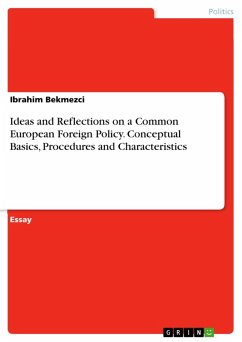Research Paper (postgraduate) from the year 2022 in the subject Organisation and administration - Public administration, grade: Distinction, University of Botswana, course: Masters in Business Studies, language: English, abstract: This discourse unpacks the Namibian Devolution policy modus operandi and modus vivendi were mooted in 1997 also in the Harambe prosperity plan document, then in the Poverty Reduction Strategy Paper and, most recently, in the Economic Development and Poverty Reduction Strategy (EDPRS) rubric. While Namibia has decentralized some of the services to sub-national states, the problem is that the Devolution process has not reached the phase of full devolution. The researcher contends that the participation of local citizens and their proficiency of the local state of affairs contribute to the more accurate documentation and prioritization of human needs. The aim of this rubric was to evaluate the Devolution policy a case of Omaheke region in Namibia. This survey attempted to achieve three objectives as highlighted below: To evaluate the Devolution policy in case of Gobabis Omaheke region in Namibia. To determine the perceptions of respondents regarding the implementation of Devolution policy. To identify community participation in a decentralised system. To derive, by way of recommendations, possible improvements on the Devolution policy. This is a case study; hence qualitative research design was adopted as the research method to use in investigating the effectiveness of Devolution on service delivery in the Ministry of Education in the Omaheke Region.
Dieser Download kann aus rechtlichen Gründen nur mit Rechnungsadresse in A, B, BG, CY, CZ, D, DK, EW, E, FIN, F, GR, HR, H, IRL, I, LT, L, LR, M, NL, PL, P, R, S, SLO, SK ausgeliefert werden.









